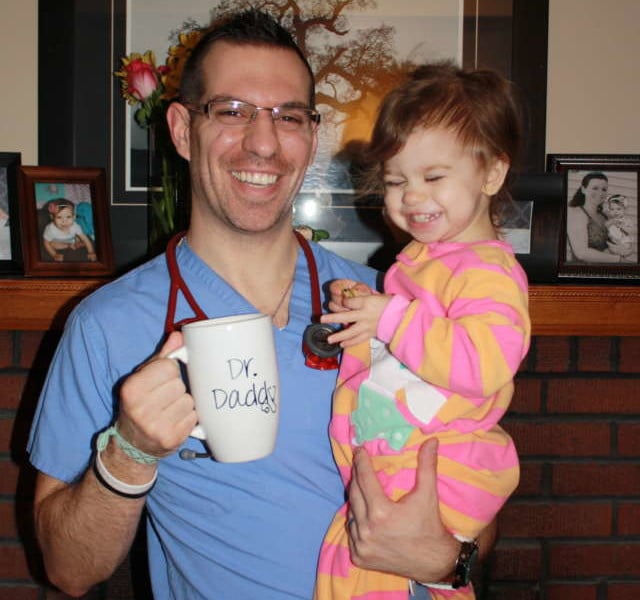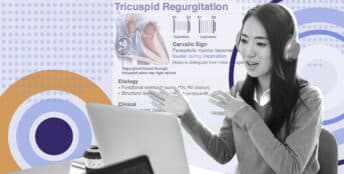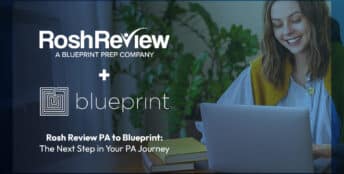Elite Test-Taker Profile: Robert Hughes, D.O.

Q. Do you have a specific pretest breakfast?
I usually have a moderate sized breakfast because I prefer to not eat mid-test. I’ll usually have yogurt, peanut butter and fruit.
Q. Do you have any night-before-the-exam routines?
I try to take the day before the exam off. I try to do something unrelated, relaxing, and distracting. I’ll run, lift weights, wood-word, do home projects. That evening I’ll review the high-yield notes I made during my study prep, major word associations, and those items that tend to fall out of memory quickly.
Q. What do you bring for lunch during your exam?
Protein bar. I eat a solid breakfast that day, and then just need a little something to keep my energy up.
Q. Do you have any strategies that you employ during the exam (e.g. Answer particular questions first, answer hardest questions last, etc)?
You have to know your pacing. I spend time before the test on board questions tracking time per question. During the exam, I take a first pass, in order. If confident about the answer, I move on, never revisit. If I need to think on it more, I do my best to narrow it down to 2 or 3 options. I then mark it and move on. At the end of the test, I usually have paced myself to have an hour or so to revisit those questions I marked. Then I spend time on each question thinking a bit deeper into it.
Q. Describe your most effective study strategies.
I start with a review test, 1 to 2 months out from a test. I focus on covering the material twice, once topically, then a second pass with a focus on trouble areas that I identified early on. In the early phase, I supplement with occasional questions particular to the study material. After the early material review, I move to almost exclusively question bank review. I then use those questions as a springboard for directed focused learning. As an example, if I missed a question on a toxidrome, I mark it as a learning point. After a question block, I take those learning points and do a textbook/review book review. As I approach test time, I am focused on Q banks and high yield lists exclusively.
Q. Do you listen to music while you study?
Yes, I prefer music that is rhythmic, uptempo, and engaging. I prefer EDM/techno.
Q. Which of the following types of media do you currently use to study?
Review books, podcasts, and question banks
Q. Do you study in groups?
No.
Q. How do you avoid distractions while you are studying?
Sounds odd, but I actually NEED distraction. I prefer to study in coffee shops or cafes. I listen to music constantly while I study. It provides a layer of ‘white noise’. I find silence and libraries too distracting.
Q. Do you highlight textbook text when studying?
Yes. No real method for this… I just find that highlighting and annotations keeps me engaged during the studying process
Q. How far in advance do you begin to prepare for a major standardized exam?
1-2 months.
Q. Is there anything else you think is important to mention regarding high performance on a standardized exam?
I think it’s exceedingly important to learn your personal test-taking style. There isn’t one right way to do this. One person’s methods may not work for you. I think the trick is to be honest with yourself about what works and what doesn’t, to not feel pressured to use a specific method that doesn’t feel comfortable, and to constantly reassess what is working and what isn’t. You can’t be afraid to change directions and consider something different. A major exam is a marathon, not a sprint. You need to start preparing early and learn your tolerance for studying. Some prefer to cram, others to spread the workload out. My one last thought is that it’s very easy to become overwhelmed with resource overload. There is a lot out there, and all very good. Question banks, review books, podcasts, etc. You need to choose a few, key resources, ones you find interesting and engaging, and ones that complement each other. Really focus on those instead of spreading yourself too thin.
Robert Hughes, D.O. is an Emergency Medicine physician, Director of Advance Practice Provider Operations, Associate Director of Medical Student Education at University Hospitals, Cleveland Medical Center.
Please leave your comments below. Please let us know particular questions you want answered by elite test-takers. Also, we are always looking for other elite test-takers to share their experiences to help thousands of other students around the world. Please share your story by emailing me at stories@roshreview.com
Don’t forget to check out this quick read on how to increase your emergency medicine board exam score by 10 points.





Comments (0)